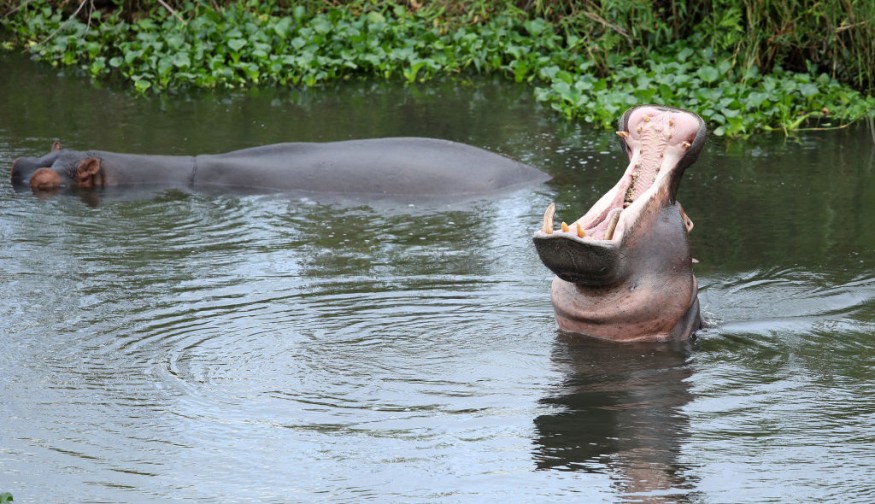Pablo Escobar's Hippos Poisoning Colombia's Waterways, Wildlife With 'Toxic' Urine

About 100 hippos of the descendants of drug kingpin Pablo Escobar's former pets are now invading Colombia's waterways and poisoning wildlife with their toxic urine and feces, scientists said.
According to a Daily Mail report, this scenario sparked calls for these hippos, which are not native to Colombia, to be culled. Reports said that Pablo Escobar bought four hippos from a California zoo in the early 1980s and illegally imported them to Colombia.
Pablo Escobar owned a 7,000-acre state that includes a personal zoo, and authorities took control of it after he was killed in a police shootout in 1993. Most animals have already found homes in other zoos, but the four so-called "cocaine hippos" escaped.
Decades later, their numbers continued to grow as they roam the wetlands north of Bogota. According to a study published in the journal Biological Conservation this month, scientists said these hippos must be culled to stop their rapidly growing population and preserve the ecosystem.
Researchers warned that hippos are likely to colonize habitats around the country with serious environmental impact. They said hippos are known to be the largest invasive animal in the world.
These hippos at Pablo Escobar's private zoo in his Hacienda Nápoles ranch had been a cause for concern last year due to how their feces affected the water they resided in.
The study said the hippos' excrement fertilized the growth of cyanobacteria or blue-green algae and threatened the water quality, NBC News reported.
"Our models predicted that the worst-case scenario would occur if no management strategies are implemented: the population will continue positively growing, with potential ecologic and socio-economic long-lasting negative effects," the study noted.
Colombian ecologist Nataly Castelblanco-Martínez told New York Post that nobody likes the idea of shooting a hippo. However, she noted that no other strategy is going to work.
Related story : Another Peek at Pablo Escobar's Luxurious Life in New Documentary 'The Hunt for Escobar's Hippos'
Growing Concerns on Pablo Escobar's Hippos
Authorities have made efforts to sterilize the hippos. However, the animals' population in Colombia continued to surge. Besides, hippos have also won the approval of locals that considers the animals as a tourist attraction. Environmental laws also protect hippos.
Researchers are urging Colombian authorities to reconsider their stance on culling the hippos as the study concluded that this is the most effective way to control their continuously growing population.
The study also suggests that there should be public education about the risk of hippos as an invasive species and their possible impact on local livelihood.
David Echeverri Lopez, a government environmentalist, said that the hippos had become part of the local identity. But their time is running out. Castelblanco-Martínez said that relocation might have been possible 30 years ago when they were only four hippos.
She added that castration could have also been effective if officials had provided enough resources for the program earlier.
Pablo Escobar's 'Cocaine Hippos'
Pablo Escobar was once the seventh richest man in the world, with an estimated $59 billion in today's money. He was known to control 80 percent of the cocaine that was shipped to the United States.
The Medellin Cartel leader liked to buy exotic animals for his private zoo, which included four hippos that he kept outside his mansion in Doradal.
The "cocaine hippos" were originally three females and one male, which then bore more hippos, causing the population to rise.
According to the study, their population could swell to nearly 1,500 individuals by 2040, making their numbers impossible to control and their environmental impact irreversible.
Subscribe to Latin Post!
Sign up for our free newsletter for the Latest coverage!

















